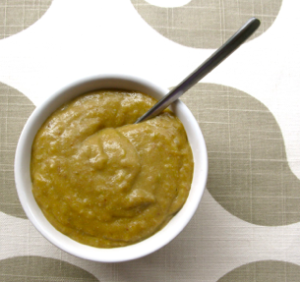Ciguatera fish poisoning sounds awful. Symptoms include paradoxical temperature perception, paresthesias, extremity numbness, a metallic taste, nausea, vomiting, abdominal pain, diarrhea, arthralgia, and myalgia. And a female fish lover in Florida experienced all of these things, according to CDC’s MMWR, after eating black grouper in October 2014.
Following her illness she notified Florida’s Department of Health through an online reportable illness complaint system.
Keen epi folks took this single case as a signal, went into the Inter and Intra-nets of the public health and identified five additional cases. After reviewing food histories (and black grouper consumption) they were able to trace the fish to a common supplier and solved the mystery.
What looked like two separate events turned out to be a bigger deal. Yay for databases.
On November 3, 2014, the Florida Department of Health in Orange County (DOH-Orange) received a report through the DOH online foodborne illness complaint system from a person (patient A) describing paresthesias and numbness that suggested CFP, which had occurred on October 31, the day after eating two fish meals. The day the report was received, DOH-Orange interviewed patient A and determined that her illness met the CFP case definition. In Florida, a single case of CFP is considered an outbreak. Multiple data sources were used to identify five additional CFP cases. DOH-Orange, the DOH Bureau of Epidemiology, the Florida Department of Business and Professional Regulation (DBPR), the Florida Department of Agriculture and Consumer Services (DACS), and the U.S. Food and Drug Administration (FDA) collaborated to conduct investigations at two restaurants, one grocery store, two fish distributors, and one fish supplier to identify the outbreak food source. The six persons with CFP had eaten black grouper either at a local restaurant or purchased from a grocery store; the fish was traced back to a common international distributor. Rapid identification and reporting of CFP cases to public health officials is imperative to facilitate supportive medical care and source-food traceback efforts.
The toxin associated with ciguatera fish poisoning is produced by a dinoflagellates (usually Gambierdiscus toxicus which lives on algae or dead coral) and is eaten up by sporting fish like barracuda, amber jack, snapper and black grouper
The fish eat the small organisms and overtime bioaccumulate the toxin in their tissue.
Then folks who like fish, eat it and get sick. Even if it’s cooked.
The toxin is pretty heat stable (FAO says that even 20 min of cooking at 158°F/70°C for 20 min was insufficient to fully denature the toxin protein).
 All 11 of those now affected by the same strain of E. coli O157 had consumed venison which was purchased raw and cooked at home before falling ill.
All 11 of those now affected by the same strain of E. coli O157 had consumed venison which was purchased raw and cooked at home before falling ill.







